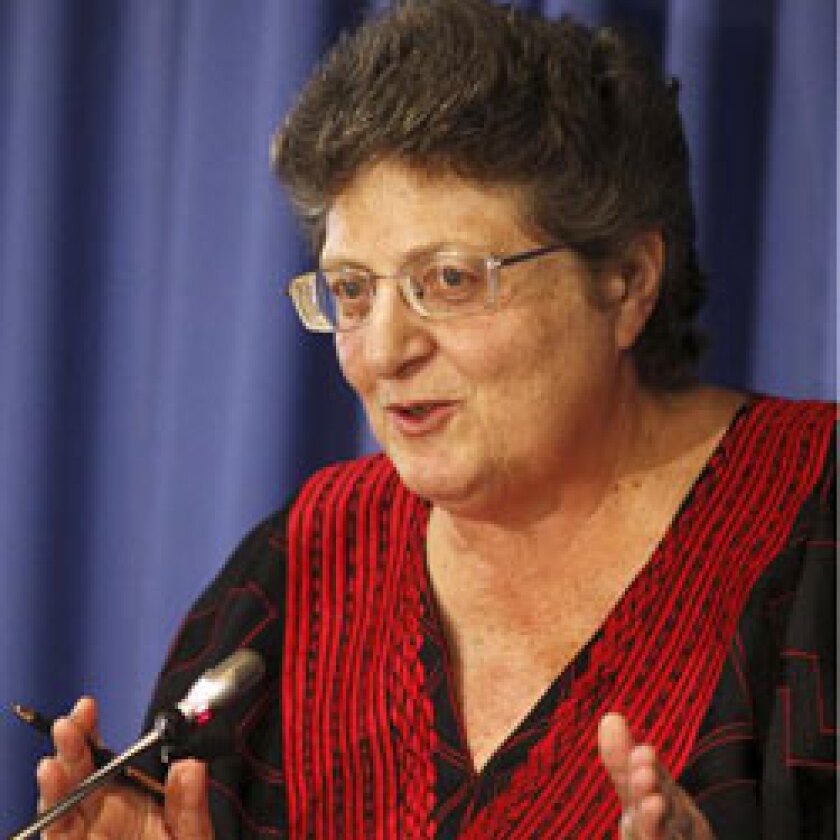The central bank governor has been praised for her ability to correctly predict where the global economy was going and to act to limit the spillover on South Africa
The Reserve Bank of South Africa (SARB), led by governor Gill Marcus, was widely praised for its decision to cut interest rates in July to help combat evidence of a slowing economy.
Marcus’s decision to cut interest rates by 50 basis points to 5% had been against the consensus expectations but had slightly slower than expected economic growth in the second quarter. Marcus’s decision to cut interest rates by 50 basis points to 5% had been against the consensus expectations but had been justified in the light of slightly slower than expected economic growth in the second quarter.
Marcus has been “successful” in her management of monetary policy, according to Murat Ulgen, HSBC’s chief economist for sub-Saharan Africa.
She has overseen a fall in annual headline inflation from 6.1% in April to 5.5% in June and 5% in August, taking it further into the SARB’s target band of 3.0–6.0%. “The bank’s mandate is price stability, and headline inflation is back in the target band. I would say they have been successful, and the move [to cut rates] is justified,” Ulgen says.
Mark Bohlund, senior sub-Saharan African economist at analysts IHS Global Insight, says Marcus has been adept at gauging where both the domestic and global economies were going. “Inflation has fallen inside the range it is targeting, and I think it is definitely good for the SARB to put a higher weight on economic growth considering the increased risks and high unemployment levels.”
He adds it was significant that South Africa’s banking sector was highly regarded and had escaped the troubles seen by US and UK banks. “If they had taken a similar hit, South Africa would not be in a position to do what they have done, and that’s at least in part due to the supervisory ability of the SARB,” he tells Emerging Markets.
Marcus took over the top job at the SARB after spending two years as chair of Absa, South Africa’s largest retail bank. The move marked a return to the central bank, where she had previously served as deputy governor between 1999 and 2004 after serving as deputy finance minister from 1996.
Peter Attard Montalto, emerging markets analyst at Nomura, says the SARB has remained “pretty conservative” in the face of the challenges. “They have increasingly called the international crisis pretty well. I’m not sure who else stands out in terms of the challenges they face,” he says.
Looking forward, Marcus’s challenge will be to continue to run a prudent monetary policy in the face of continued long-term structural economic problems. “South Africa’s economy has structural constraints, mostly on the supply side and predominantly related to its labour market rigidity,” Ulgen says. “Could further monetary loosening help? We believe it could.”
EM INTERVIEW South Africa’s central bank governor does not rest on her laurels, as the world economy is not out of the woods, and there are still challenges ahead.
“I do think we’ve had some achievements, but I think one should temper that with a question of saying things are changing rapidly and things are extremely difficult,” Gill Marcus tells Emerging Markets. “I think for anyone in a central bank or a fiscal policy commission for a government side ... it would be very premature to look at achievements and rest on the laurels and be complacent.”
In September, the central bank left rates unchanged at 5%, with Marcus saying this stance ensures both keeping inflation at bay and encouraging growth. She explains the philosophy behind the central bank’s monetary policy decisions: “We try to focus on the medium-term horizon, but we try to avoid excessively variable interest rate movements or a knee-jerk reaction to changes in the inflation outlook.
“We try to see where [inflation] could go, how it could go, what’s driving it, is it domestic, is it exogenous, is it driven by things that we have some control over... and we try to avoid over-reacting to the exogenous shocks, even if they have been significant. This can only be done successfully if inflation expectations are relatively well anchored.”
To gauge inflation expectations but also to update estimates about price rises and economic growth regularly, as well as to improve communication, representatives of the central bank have regular meetings with representatives of the main industries such as the mining sector, the motoring sector, trade unions or community representatives.
“We try to not rely on one set of data or one look. We try to really challenge our own perceptions all the time. We also try to communicate our views about what monetary policy can do, what it can’t do, as well, and try to avoid excessive, unrealistic expectations that we can solve all challenges in the economy,” Marcus says.
The outlook for growth, especially in China, which is a big trading partner for African countries, the fallout from the eurozone crisis and the danger posed by the US “fiscal cliff” are challenges that, albeit external, all African economies must be aware of, Marcus says.
“We certainly recognize that the biggest challenges we face are global and in the advanced economies,” she says, adding that the resolution of the financial crisis that has been going on for five years is likely to take another five to seven years, assuming it does not get worse.
